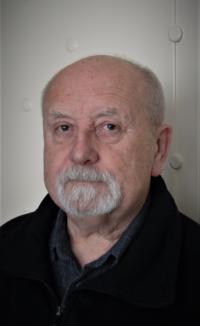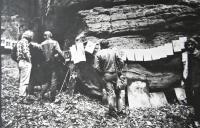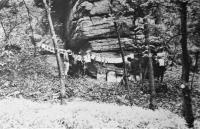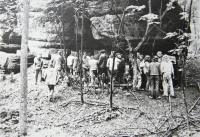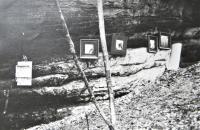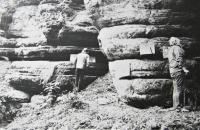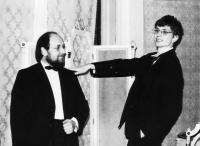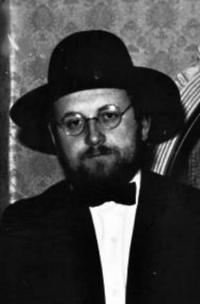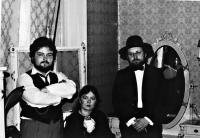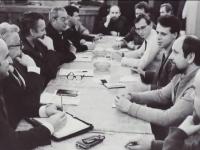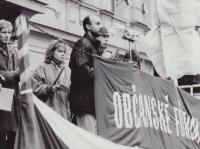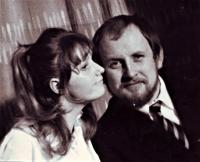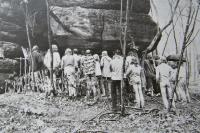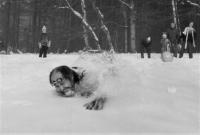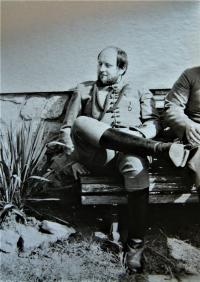Diminishing the space of universal evil which changes its form, this is what I consider my lifelong task

Stáhnout obrázek
Eduard Vacek was born on April 20, 1947 in Hradec Králové to Taťána and Eduard Vacek in the family where the father‘s side of the family had strong Communist inclinations. He had conflicts with this ideology already since his childhood. Eduard completed studies at the secondary technical vocational school in Hradec Králové, specializing as an electrician. He intensely watched the invasion of the Warsaw Pact armies during his military service in the border region in defence units where the soldiers had differing opinions about the invasion. He was deeply shaken by the events of the ensuing normalization period. Eduard at first moved to Prague, but he was not able to find a suitable place to live there, and subsequently he moved with his wife Ludmila to Teplice, where they started a family. He worked as an electrotechnician and as a technical development specialist in a number of companies. He was active in the congregation of Jehovah Witnesses, and he later transformed their group into a Pataphysical Collegium Teplice, which was later joined by some other artists. He was publishing magazine PAKO, he was one of the cofounders of the art group Terč („Target“) and he participated in many unique cultural events, which were bordering the extreme from the viewpoint of the political regime at that time. Eduard spent one year in prison for his activities. During the Velvet Revolution he emphasized the importance of morals in the Civic Forum Teplice, and in 1990-1992 he was a deputy in the Parliament of the Czech Republic, serving as a vice-chairman of the Committee for Legal Protection and Security, and as the chairman of the Committee for Prison Service of the Czech National Council. After the end of his term as a deputy in 1993 he began working in the public relations department of the General Directorate of the Prison Service of the Czech Republic. He established magazines Czech Prison Service and Historic Penology, and he wrote and published a number of expert articles and historic studies. He is the author of many books which reflect on social problems. He collaborates with the edition Libri prohibiti. He considers himself a conscious adherent of pataphysics.
